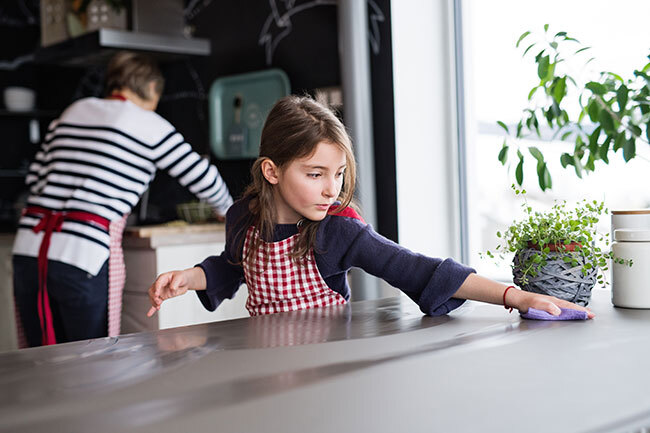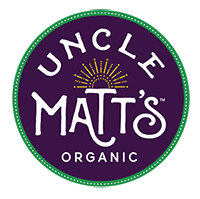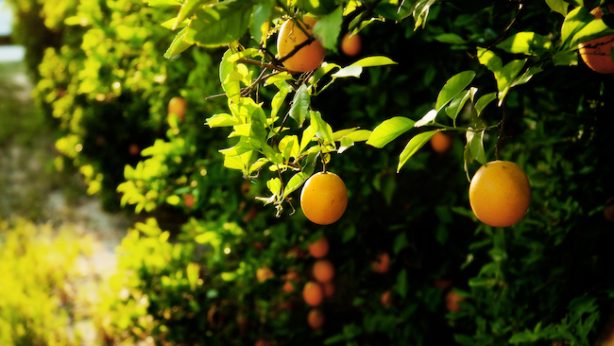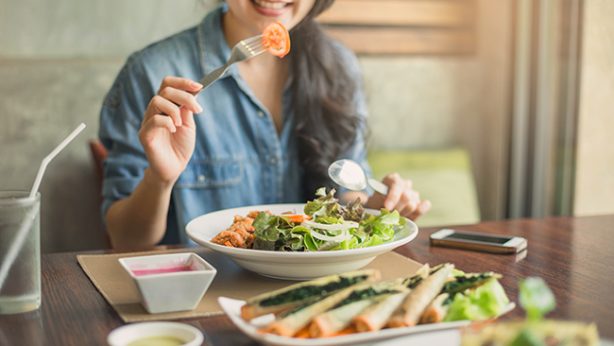Tips for A Cleaner, Greener Lifestyle

Avoiding pesticides in your home has a huge impact on your child’s health
With so many food options and cleaning products available in the market, it’s hard to keep up with what’s safe to bring into your home. Synthetic chemical pesticides are especially worrisome as pesticide exposure might not just negatively affect you but could have more significant impacts on our kiddos. The American Academy of Pediatrics has studied pesticide-related illnesses in children with studies suggesting that exposure could lead to birth defects, cancer or other behavioral disorders.
To help out, we’ve put together a few ideas to keep in mind for protecting our vulnerable little ones from harsh pesticides at home – from the foods they eat to what’s being used to clean the house.
1. Wash your fruits and veggies with water before prepping. The FDA advises against using additional cleansers due to the porous surfaces of produce and unknown risks associated with consuming these cleansers that might leave residue. Running water is a great way to remove surface level dirt and bacteria from the outside of your produce.
For meat and fish, the EPA recommends trimming fat and removing the skin to reduce exposure to pesticides as they can collect in the fatty areas.
2. Avoid pesky bugs inside and outside your home the eco-friendly way. When inside, keep the kitchen and other parts of your home tidy. Wipe up crumbs and put food and standing water away so bugs aren’t interested in moving in. No toxic chemicals needed. When outside, nix the harmful bug deterrents in your yard and instead, choose to light citronella candles to deter mosquitos – bugs hate the smell! You can also follow the EWG’s guidance for selecting a bug repellant based on age, types of bugs present and how long you’ll be outside.
If you find yourself in need of hiring a professional to handle home pests, the EPA provides a guide for selecting a pest control company to ensure you’re making a smart decision for your needs.
3. One of the primary ways we’re exposed to pesticides is through the foods we eat. When possible, choose organic produce. The EWG provides a list of the Dirty Dozen produce items that are most likely to contain pesticide residue when grown conventionally. When organic might not be an option, the EWG also provides a guide for the Clean Fifteen produce items that are less likely (but not guaranteed) to have as many pesticides used. Of course, at Uncle Matt’s we support organic farmers, but you can take small steps to make a big impact.
4. Think outside the grocery store box! If you’re planting your own backyard garden with fresh produce, use organic fertilizers and homemade compost to feed your garden. Avoid spraying for bugs and weeds using harsh pesticides as those will get in the soil and ultimately end up on your plate. Deter bugs by planting natural repellents like marigolds to keep the bugs off your home harvest. If the weeds get unruly, pull them by hand.
5. Read, Read, Read! When it comes to products for home pest control, ALWAYS read the label for warnings and directions for use. The EPA provides guidance and resources on safely using in-home products, but always look for the EPA registration number first to know it’s been reviewed.


